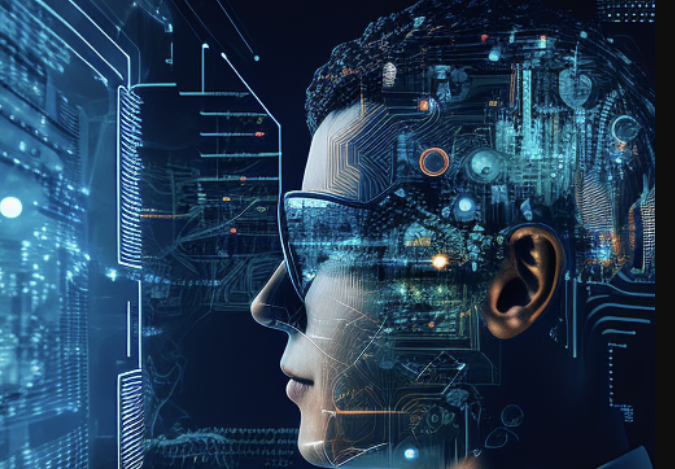Navigating the Future: AI-Driven Innovation in Tomorrow's World

n an era of unprecedented technological advancement, artificial intelligence stands at the forefront of innovation, reshaping our understanding of what's possible. The convergence of AI with other emerging technologies is creating new paradigms that will fundamentally transform how we live, work, and interact with our environment.
The Intelligent Infrastructure Revolution
Tomorrow's cities will be orchestrated by interconnected AI systems managing everything from energy grids and transportation networks to public services. Self-healing infrastructure will predict maintenance needs before failures occur, while autonomous transportation systems will optimize traffic flow and reduce congestion.
Perhaps most revolutionary is the emergence of ambient intelligence—environments that sense, anticipate, and respond to human needs without explicit commands. Buildings will adjust their systems based on occupancy patterns and environmental conditions, creating spaces that adapt seamlessly to human behavior.
Healthcare Transformation Through Predictive Analytics
The integration of AI with healthcare is moving us from reactive treatment to proactive prevention. Advanced diagnostic systems already outperform human specialists in detecting certain conditions, while predictive models identify potential health issues years before symptoms appear.
Personalized medicine powered by AI will tailor treatments to individual genetic profiles, microbiomes, and lifestyle factors. This shift toward precision healthcare promises to dramatically improve outcomes while reducing costs and side effects associated with one-size-fits-all approaches.
Navigating the Future: AI-Driven Innovation in Tomorrow's World
In an era of unprecedented technological advancement, artificial intelligence stands at the forefront of innovation, reshaping our understanding of what's possible. The convergence of AI with other emerging technologies is creating new paradigms that will fundamentally transform how we live, work, and interact with our environment.
The Intelligent Infrastructure Revolution
Tomorrow's cities will be orchestrated by interconnected AI systems managing everything from energy grids and transportation networks to public services. Self-healing infrastructure will predict maintenance needs before failures occur, while autonomous transportation systems will optimize traffic flow and reduce congestion.
Perhaps most revolutionary is the emergence of ambient intelligence—environments that sense, anticipate, and respond to human needs without explicit commands. Buildings will adjust their systems based on occupancy patterns and environmental conditions, creating spaces that adapt seamlessly to human behavior.
Healthcare Transformation Through Predictive Analytics
The integration of AI with healthcare is moving us from reactive treatment to proactive prevention. Advanced diagnostic systems already outperform human specialists in detecting certain conditions, while predictive models identify potential health issues years before symptoms appear.
Personalized medicine powered by AI will tailor treatments to individual genetic profiles, microbiomes, and lifestyle factors. This shift toward precision healthcare promises to dramatically improve outcomes while reducing costs and side effects associated with one-size-fits-all approaches.
Augmenting Human Capabilities
The most profound innovations will enhance our inherent human capabilities rather than replace them. Brain-computer interfaces will enable direct communication with digital systems, while extended reality technologies will blur the boundaries between physical and virtual environments.
Cognitive augmentation tools will amplify intellectual capabilities, allowing us to process complex information more effectively. Meanwhile, creativity-enhancing systems will serve as collaborative partners in art, design, and problem-solving—suggesting novel approaches and expanding our conceptual boundaries.
Sustainable Intelligence for Planetary Challenges
Perhaps the most urgent application of AI innovation lies in addressing global environmental challenges. Advanced climate modeling powered by quantum computing will deliver unprecedented predictive accuracy, while intelligent resource management systems will optimize consumption and minimize waste.
AI-driven circular economy platforms will transform supply chains by tracking materials through their lifecycle, identifying opportunities for reuse, and minimizing environmental impact. These systems will help us achieve sustainable prosperity that respects planetary boundaries.
The Ethical Dimension of Innovation
As we navigate this future, ethical considerations must remain central to technological development. Questions around data privacy, algorithmic bias, and equitable access to benefits will require thoughtful governance frameworks and continuous reassessment.
The most successful innovations will be those that align technological capability with human values and needs. This human-centered approach demands inclusive design processes that consider diverse perspectives and prioritize wellbeing alongside efficiency.
Preparing for an AI-Augmented Future
To thrive in this emerging landscape, both individuals and organizations must develop new capabilities. Adaptive learning, critical thinking, and human-AI collaboration skills will become increasingly valuable, as will emotional intelligence and creative problem-solving.
Educational systems will need to evolve beyond knowledge transfer to emphasize these metacognitive skills. Simultaneously, organizational structures will transform to leverage the complementary strengths of human and artificial intelligence in hybrid teams.
The future of AI innovation is not about building a world where technology operates independently of human guidance. Rather, it's about creating symbiotic relationships between human creativity and machine capability—partnerships that enable us to address challenges and pursue opportunities beyond the reach of either alone.
By approaching innovation with both boldness and wisdom, we can shape a future that amplifies human potential while building a more sustainable, equitable, and flourishing world.

